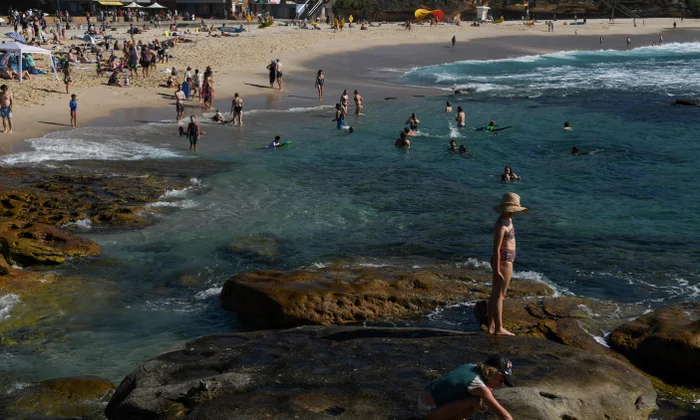Latest reports have shown that more than a quarter of New South Wales’ favourite swimming spots have been polluted by faecal matter over the past year including Sydney’s Coogee, Bronte and Malabar beaches.
With the Bureau of Meteorology predicting a wet summer, the government has urged swimmers to check its online water quality monitor for updates after its annual state of the beaches report found 28% of the 218 tracked sites experienced pollution.
As in previous years, estuaries, lakes and lagoons were the worst affected in 2023-2024 as they collect large amounts of runoff compared with ocean beaches, the NSW State of the Beaches report released on Saturday shows. While 95% of the 118 monitored ocean beaches were graded as “very good” (with generally excellent microbial water quality) or “good” (where swimming should only be avoided the day after heavy rain), six beaches were rated “poor”.
The “poor” beaches – those susceptible to faecal pollution and not always suitable for swimming, especially after rain – were Shelly beach in Manly, Bronte, Coogee, Malabar and Boat Harbour beaches in Sydney, and Surf beach on the south coast.
Read also: Tom Kerridge calls on UK government to fund surplus food scheme
Coogee, Malabar and Surf beach were also rated “poor” last year. This year’s report, prepared by the environment department, said Malabar beach takes longer to recover from stormwater events because it is at the end of a long, narrow bay.
The government previously invested $2.5m into the diversion of stormwater from Coogee beach with a plan due to be presented to the local council for consideration next year, according to the report.
While 39, or 53%, of the 73 monitored estuarine swimming sites were graded as “very good” or “good”, 31 were graded as “poor”, including Rose Bay beach and Murray Rose pool, better known as Redleaf, in Sydney Harbour.
Foreshores beach in Botany Bay and Gymea Bay baths in Port Hacking in Sydney’s south were again graded as “very poor”, which the government recommending avoiding swimming at these sites “almost all of the time”.
All five monitored freshwater sites, which include Wentworth Falls Lake beach in the Blue Mountains and Arthur Keough Reserve on the mid-north coast, were rated “poor” or “very poor”.
The report was prepared off the results of 20 audits of field samples collected and analysed throughout the year by scientists working for the government’s Beachwatch program in partnership with Sydney Water and Hunter Water.
Story was adapted from the Guardian.
